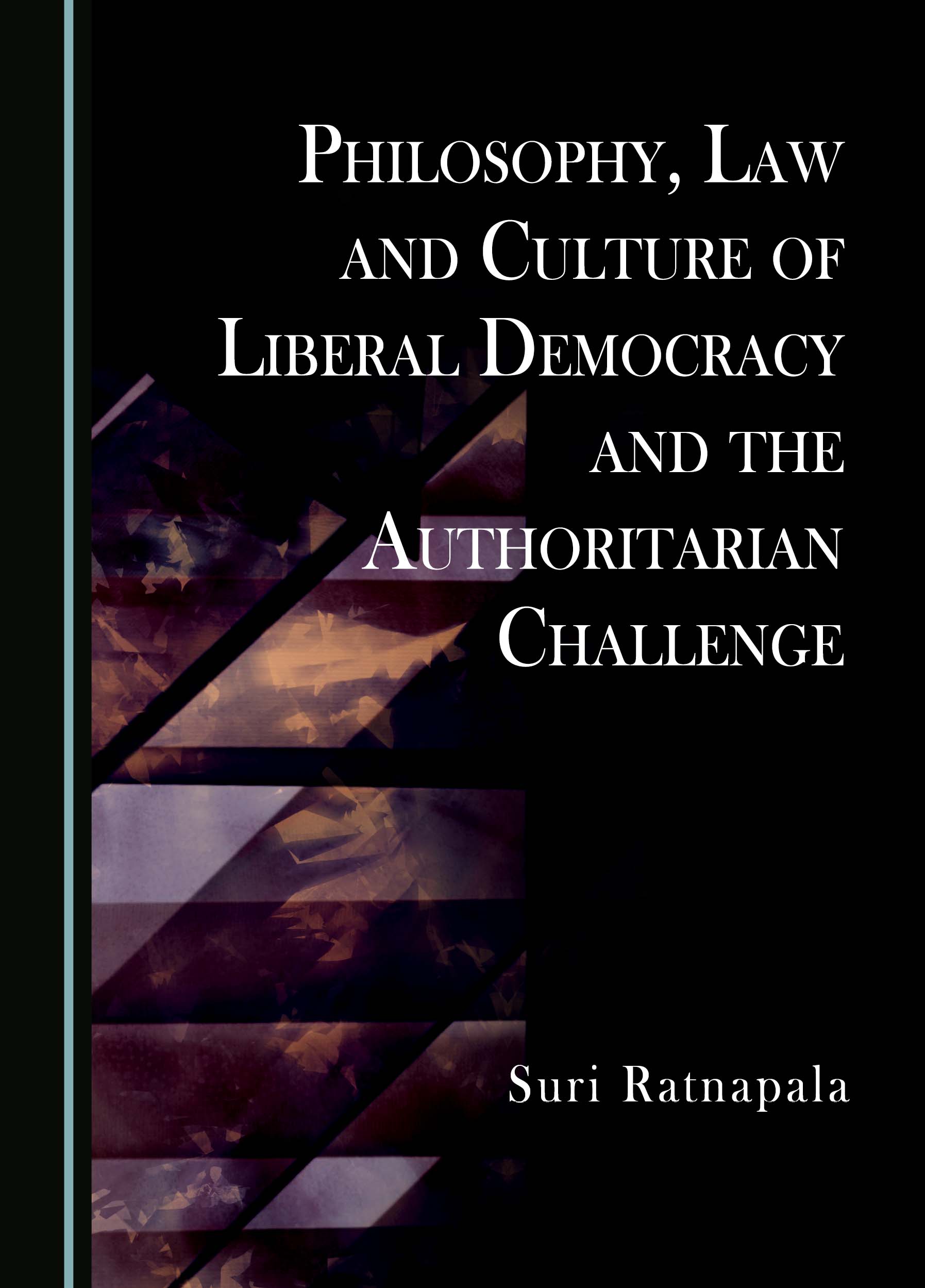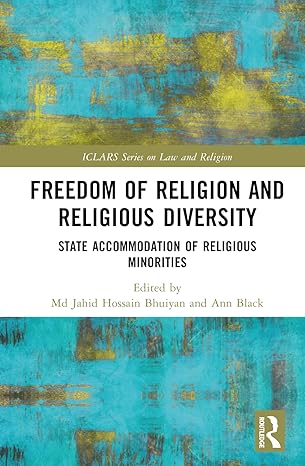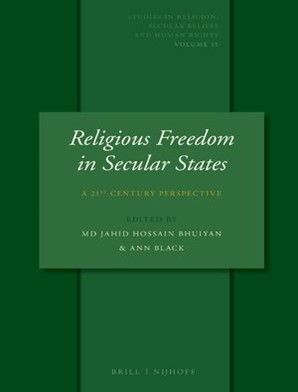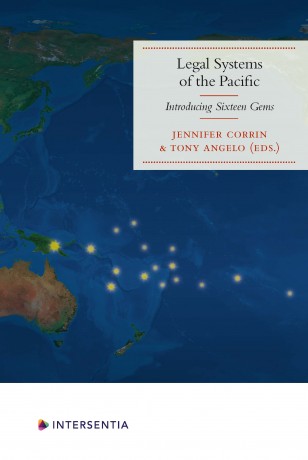Featured publications
 Federalism in a Turbulent Era edited by Professor Nicholas Aroney and Dr Renato Costa
Federalism in a Turbulent Era edited by Professor Nicholas Aroney and Dr Renato Costa
This book offers a timely, global account of how nine federations are grappling with twenty-first-century crises!
Edited by two Directors of the Centre for Public, International and Comparative Law, Professor Nicholas Aroney and Dr Renato Costa, Federalism in a Turbulent Era is a major new contribution to comparative federalism. It examines how federal systems across the world navigate the acute pressures of our turbulent era. Drawing on case-study analyses of nine diverse federations – Argentina, Australia, Brazil, Canada, Ethiopia, Malaysia, Nigeria, Russia and the United States – the book showcases how constitutional design, intergovernmental relations, and political culture have shaped responses to crises such as pandemic management, populism, inflation, climate change, and territorial conflict.
The volume highlights how federal structures mediate the balance between unity and diversity, as well as regional autonomy and collaboration in moments of turbulence, and how resilient institutional design and cooperative mechanisms can help federations meet contemporary challenges.
As Stephen Tierney observes, it is ‘the first book to address the implications of these upheavals for federal systems’, making it an essential resource for scholars and students of constitutional law, political science and public administration, as well as policymakers and practitioners navigating federal governance in the twenty-first century.
For more information, click here!
Philosophy, Law and Culture of Liberal Democracy and the Authoritarian Challenge by Suri Ratnapala
Defending liberal democracy against rising authoritarianism is a moral imperative in our time!
Liberal democracy is the great legacy of the Enlightenment; it has reduced world poverty, increased life expectancy, enriched lives by every measure of wellbeing and enlarged our moral compass. Yet, external threats to liberal democracy are posed by totalitarian regimes and their allies seeking to remake the world in their image, and internal pressures arise from opposition to liberal principles from the extremities of the ideological spectrum: radicalism on the left and nativist populism on the right. The defence of liberal democracy requires understanding of its foundational principles, epistemological norms, institutional framework, cultural underpinnings and economic settings.
In Philosophy, Law and Culture of Liberal Democracy and the Authoritarian Challenge, acclaimed author and legal scholar Emeritus Professor Suri Ratnapala provides combines extensive legal analysis with the history and philosophy of liberal constitutionalism, institutional economics and ethical reasoning. It engages with opposing schools of thought, including radical critical theory and authoritarian ideologies of the right. This book is not just an academic exercise; it is a call to action. It is highly instructive on matters of administrative and constitutional law, the epistemology and ethics of political liberalism, and the pressing threats to fundamental rights and freedoms.
Freedom of Religion and Religious Diversity: State Accommodation of Religious Minorities, a groundbreaking volume edited by esteemed CPICL Fellows, Professor Jahid Bhuiyan and Professor Ann Black. Published by Routledge in 2024, this essential work delves into the intricate and often contentious issue of how states accommodate religious minorities within their borders.
into the intricate and often contentious issue of how states accommodate religious minorities within their borders.
The book features significant contributions from CPICL members, with five of its 19 chapters written by CPICL Fellows. These five chapters are included in Part Three: Freedom of Religion and Accommodation of Religious Diversity in Asia. Highlights include:
- Religious Minorities in Brunei and Malaysia by Prof Ann Black (UQ and CPICL Director of Comparative Law)
- Freedom of Religion and Religious Minorities in Indonesia: The Local Beliefs Case by Ahmad Rofii and Nadirsyah Hosen (External CPICL Fellow & Assoc Prof at Melbourne University)
- Muslim Religious Minorities in India and Citizenship Amendment Act by Md Jahid Hossain Bhuiyan (CPICL External Fellow & Professor of Law, Independent University, Bangladesh)
- The Accommodation of Islamic Inheritance Law in ‘Secular’ India by Dr. Brooke Thompson (CPICL External Fellow)
- State Regulation and Promotion of New Religious Movements within the two ‘Spiritual Vacuums’ of Japan and China by Anthony Shaw (CPICL Research Scholar
The nineteen chapters in the book explore the obstacles and responses to accommodation of religious minorities in a range of jurisdictions. Whilst most nations seek to implement the ideal of freedom of religion, it shows, whether East or West, in the global North or the South, there is no simple formula for accommodating religious diversity. Different faith communities have competing needs and demands. This book highlights responses from liberal democracies which enshrine secularism into their constitutions to other constitutions where religion and ethnic identity are enshrined to prioritise their ethno-religious majority.
Religious Freedom in Secular States: a 21st Century Perspective
This book reflects on what constitutes the core values, tenets, cultural, historic, and ideological parameters of secularism in international contexts. In twelve chapters, this edited work examines current tensions in liberal secular states where myriad rights and freedoms compete regarding education, healthcare, end-of-life choices, clothing, sexual orientation, reproduction, and minority interests. It explores the legal complexity of defining a ‘religion’ through judicial decisions and scrutinises Christianity, Hinduism and Islam’s relative success in accommodating religious pluralism.
Part One explores the religious practice and persecution nexus, COVID-19’s effect on religious freedom, religious education, burqas/headscarves, and religious culture in civil law. Part Two explores the constitutional principle of secularism in Member States of the Council of Europe, US Religious Clauses, and religious freedom in South Africa, UK, Australia, and India.
Editors: Md. Jahid Hossain Bhuiyan (External CPICL Fellow) and Ann Black (CPICL Executive Director (Comparative Law). Both are members of CPICL’s Legal Pluralism Program.
 Legal Systems of the South Pacific
Legal Systems of the South Pacific
With no new books written on these legal systems for nearly 30 years, the book fills a gap in the literature and offers a true 'insider' perspective with the majority of authors being indigenous or long-term residents of the countries in question.
Editors: Jennifer Corrin, Tony Angelo, Cambridge, UK, Intersentia, 2021.
UQ Law research
Connect with our researchers
Collaborate with us to solve today's pressing challenges. Find out how we can work together.
Find a researcher by name
Find researchers by research area
Research themes & challenges
Potential HDR projects
Summer/Winter research scholarships
What's on
Research groups
Australian Centre for Private Law
Centre for Public, International and Comparative Law
Food Security and Intellectual Property
Indigenous People and the Law
Law and the Future of War
Law and Religion in the Asia-Pacific
Law, Science and Technology
Marine and Shipping Law Unit
UQ Solomon Islands Partnership
